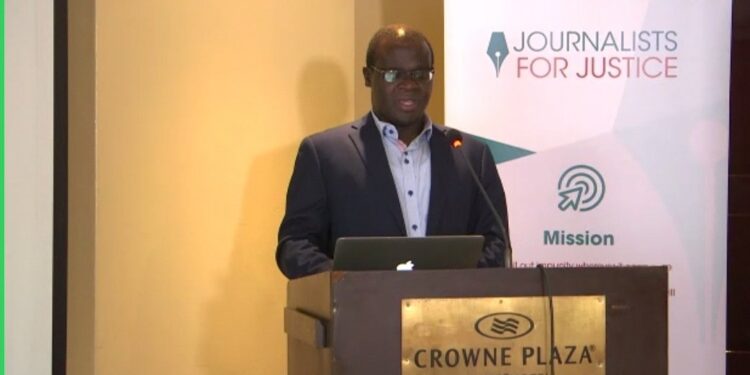PRESS RELEASE
The Right the Wrongs: Spotlight on the 2020 General Election in Tanzania report was launched at Crowne Plaza Hotel in Nairobi, Kenya, on June 2, 2022.
During the 2020 elections in Tanzania, there were several reports of killings, physical attacks resulting in injuries, torture, abductions, and arrests. Opposition political parties reported arbitrary arrests, detention, and attacks against their members. By November 2, 2020, human rights monitors and lawyers representing political opposition parties reported over 300 people as having been arbitrarily arrested, detained, or disappeared by security forces.
In the lead-up to the elections and days after, there was a heavy and intimidating presence of security forces across Zanzibar. Security officers harassed and physically assaulted residents, who remained fearful of reporting such incidents since the perpetrators were the same individuals tasked with maintaining security and receiving reports of violations.
Right the Wrongs documents how armoured vehicles patrolled the streets where security forces, including the Tanzania Police Force, the Tanzania People’s Defence Forces, the Zanzibar Special Forces, and alleged militia and vigilante groups reportedly shot and killed several civilians.
Death, injury, arrests and detention; this was only part of the human cost of the October 2020 elections in Tanzania. The heavy and intimidating security presence across mainland Tanzania and Zanzibar around election time presented a facade of law and order, but under this mask was the stark face of impunity and criminality, said Journalists For Justice and Sauti Kubwa, the two organisations that published the report.
Among the key speakers at the launch of the Right the Wrongs report were Ismail Jussa, a member of the Central Committee of the Alliance for Change and Transparency (ACT-Wazalendo), the leading opposition party in Zanzibar and second largest opposition party in mainland Tanzania; Dr Helen Kijo-Bisimba, a prolific human rights defender in Tanzania and former Executive Director of the Legal and Human Rights Centre; and Dr Ananelea Nkya, a media expert, researcher, creative public speaker, writer of news stories on development, human rights, and political issues, and former Executive Director of the Tanzania Media Women Association.
The session was moderated by Kwamchetsi Makokha, a communication specialist and Programme Adviser at Journalists For Justice. Sauti Kubwa was represented by Ansbert Ngurumo, author, award-winning journalist, human rights defender, blogger, philosopher, communication specialist, and President and Editor-In-Chief of SK Media.
Human rights violations in the context of elections are not unique to Tanzania. Elections in the East African region have been characterised by security forces’ brutality, including use of excessive – and lethal – force to control and disperse peaceful protests, arbitrary arrest, detention, and torture of real and perceived members of opposition parties and other critics. After the 2020 elections in Tanzania, the polls in Uganda the following year were marred by state-sanctioned violence evident in members of opposition parties being arbitrarily arrested, tortured, and killed. With elections in Kenya two months away, this is an important report for all stakeholders to advocate that states prevent violations and strengthen the protection of human rights before, during, and after casting of ballots
The lengthy and bloody human rights invoice from Tanzania’s October 2020 elections is detailed in the report, which provides evidence of gross violations that rocked the country during that period. It was compiled from reports by monitors deployed across Tanzania between June 2021 and April 2022 to gather corroborative evidence and document human rights violations relating to the election period.
Right the Wrongs observes that no known accountability measures have been instituted for the deaths, injuries, and other rights violations in mainland Tanzania and Zanzibar.
It further calls on the Tanzania and Zanzibar presidents, as well as relevant government agencies, to own up to the documented violations and undertake to provide redress. It also calls on the electoral management bodies in the country as well as the Parliament to reform the law and procedures that make it possible for such violations to occur.
The report also urges the African Commission on Human and People’s Rights and the Office of the United Nations High Commissioner for Human Rights to pass resolutions reflecting the report findings and take up the matter with the Tanzanian authorities.
Download the report here: RIGHT THE WRONGS REPORT 4
For more information or to arrange an interview, please contact: Waceke Njoroge bnjoroge@jfjustice.net and Ansbert Ngurumo ngurumo@protonmail.com







